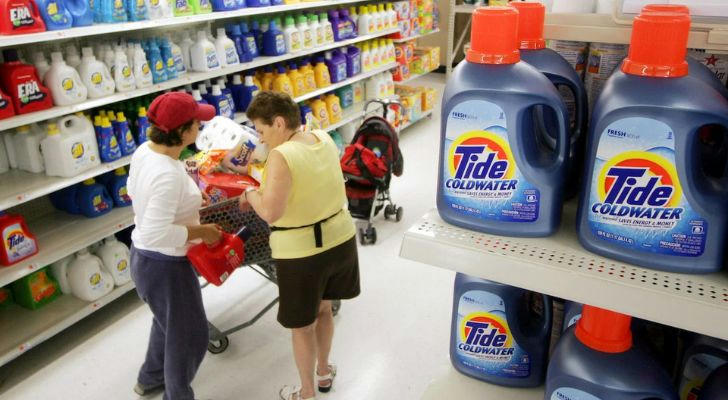How to Get Laundry Detergent Support in the United States
Getting help with household essentials like laundry detergent is possible in the United States through various public programs, non-profit organizations, and community networks. Whether you’re looking to reduce daily expenses or are facing temporary financial hardship, there are many legitimate and organized channels that provide laundry detergent and similar supplies to households in need.

1. Government and Nonprofit Assistance Programs
Local government assistance programs and nonprofit organizations sometimes provide household necessities as part of broader community support efforts. Programs such as The Salvation Army’s Family Services or United Way community partners often distribute laundry detergent along with other cleaning products.
👉 Tip: Contact your city or county’s human services office or visit their official website to check for current support programs.
2. Community Centers and Faith-Based Organizations
Community centers, churches, and faith-based charities frequently organize household goods distributions. Many operate community pantries or “cleaning closets”, where residents can receive detergent, soap, and similar items. These services are designed to help low-income families or individuals experiencing hardship.
➡️ To find such resources, check community bulletin boards or local announcements.
3. Food Banks and Household Supply Pantries
In addition to food, many food banks have expanded to include basic household items such as laundry detergent, dish soap, and toiletries.
Organizations like Feeding America and their local partners often collaborate with retailers to supply these products.
You can visit your nearest food bank’s website or call ahead to see if they include laundry detergent in their offerings.
4. Brand and Retailer Community Programs
Some laundry detergent brands and large retailers have ongoing community support initiatives.
For example, Tide’s “Loads of Hope” program provides laundry services and detergent to communities recovering from natural disasters or economic challenges.
Similarly, major retailers sometimes collaborate with nonprofits to donate household products to local shelters and community groups.
5. Neighborhood Exchange and Support Networks
Neighborhood-based mutual aid groups and online platforms like Nextdoor or local Facebook community pages often host donation or exchange activities.
Residents share extra household products, including laundry detergent, with neighbors in need.
Participating in these local groups helps you stay informed about upcoming community supply distributions.
6. Seasonal Drives and Special Events
During major holidays or back-to-school seasons, many charities and organizations hold donation drives that include household essentials.
For instance, local YMCAs, housing assistance programs, or community service clubs may organize “clean home” or “family care” events where detergent and hygiene products are distributed.
🗓️ Keep an eye on community calendars and newsletters to stay updated.
7. Laundry Detergent Support by Age Group
Ages 45–54:
Individuals in this stage often balance work, family, and caregiving responsibilities. Community-based assistance programs or workplace charity drives sometimes include laundry detergent in household care packages. Some local unions and employee wellness programs partner with nonprofits to distribute cleaning and hygiene products.
Ages 55–64:
This age range may experience income transition due to early retirement or reduced employment. Community action agencies, food banks, and faith-based organizations (such as the Salvation Army and Catholic Charities) often provide detergent and household items as part of their family assistance or financial relief programs.
Ages 65–74:
Older adults in this group often rely on senior centers, Aging and Disability Resource Centers (ADRCs), or local community outreach programs for practical household support. Many of these programs include laundry detergent and other essentials to help maintain cleanliness and independence for seniors on fixed incomes.
Ages 75–85:
Seniors aged 75 and above are more likely to benefit from home assistance services, long-term care support, or charitable in-home delivery programs. Organizations such as Meals on Wheels, the Salvation Army, and local aging councils sometimes deliver detergent, personal care, and cleaning supplies alongside food or medical assistance, ensuring comfort and dignity for elderly residents living alone or in assisted living.
8. Case Example
A resident named Lisa in Chicago once received laundry detergent through a community support program organized by her local food pantry in partnership with a nonprofit environmental group.
The initiative promoted sustainable living while supporting low-income households. Lisa discovered the event through a school flyer, attended a short workshop on eco-friendly cleaning habits, and received detergent and other products provided by the organization.
9. Conclusion
Access to laundry detergent support in the United States is available through many organized community resources — from food banks and nonprofit programs to government assistance and neighborhood networks.
By connecting with these channels, residents can reduce financial burdens and maintain household hygiene with reliable support from caring organizations and community partners.
